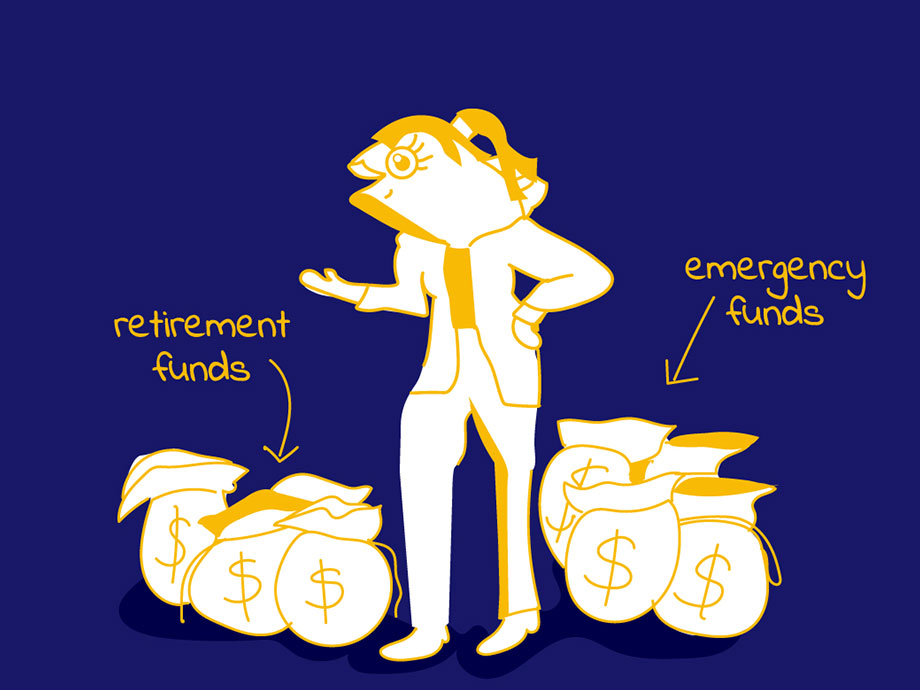Financial Planning | Life | Personal Finance | Personal Stories | Article
This Is Home, Truly: LGBT+ Folk on Living Long-Term in Singapore
by Sophia | 2 Apr 2019 | 5 mins read

In Singapore, becoming a homeowner is pretty much a rite of passage. It happens in stages: you find your significant other, date, and then get engaged to them. After that, you’ll ballot for a BTO flat (a fairly straightforward process) and make plans to Sims it up before throwing a housewarming party. Milestone achieved! Living long-term in Singapore feels like such a dream!
This is because same-sex marriage, a long-standing issue in our country, is still out of the question. Unlike straight, married couples in Singapore, LGBT+ people are left to pursue other options, like waiting until they turn 35 to be eligible to purchase resale HDB flats.
And that’s a hell of a waiting game.
But wait – what about the minority that can’t go down this road? LGBT+ couples in Singapore might find the BTO dream a little less than attainable – in fact, it’s practically impossible.
This is because same-sex marriage, a long-standing issue in our country, is still out of the question. Unlike straight, married couples in Singapore, LGBT+ people are left to pursue other options, like waiting until they turn 35 to be eligible to purchase resale HDB flats.
And that’s a hell of a waiting game
Limited options for LGBT+ folk for living long-term in Singapore
On top of that, those in the LGBT+ community (and, of course, those who wish to remain unmarried) can only purchase flats as singles via the following schemes:
But as mentioned, these schemes are only available for those above 35. Even then, these schemes only allow balloting of 2-room BTO flats in non-mature estates and condominium units (which don’t have age restrictions, but a typical 3-room condo unit generally starts from a million dollars).
So unless you are rich, there are lesser options to work with. Despite that, do LGBT+ folk still think settling down in Singapore is worth it in the long run?
I’d stay; Singapore is the best place to live in’
Despite stringent laws and the presence of 377A here, I was surprised to discover that most of the people I interviewed have no qualms about staying in Singapore “despite its conservative nature.”
Sasha (not her real name), 25, said this about Singapore: “It’s the best place to live in. Other countries have better laws regarding same-sex marriage, but racism and crime are rampant.
“We have to give and take, right?”
Jay, 29, is confident that living in Singapore with their partner is the most ideal course of action. “We’re both working. Our dual income can pay for the flat.”
For others, settling down in Singapore is also tied to their career aspirations. Marie, who’s 30 this year, hopes to affect some change in Singapore’s social norms through the creative/arts industry.
One of the most striking responses came from Sophia (not her real name), who indicated she prefers to remain in Singapore. “My family is here. Though I don’t have close relations with my family, my partner (who is trans, pre-T) does and it doesn’t make sense to uproot him from all that he knows just so we can get married.
“We can still live together before turning 35 by renting a place, and after 35, we’ll use the singles schemes.”
Moving elsewhere because ‘there’s no aid given for buying homes’
An interesting response came from Travis, who said that without being “legally recognised in a marriage, there’ll be no aid given for buying homes.”
He continued, “I might be better off settling down somewhere else and choosing a home outside of the country I was born in.”
But it’s worth highlighting there are HDB grants out there available, whether you’re buying a 3-room 4-room or smaller resale flat, or a 5-room resale flat. These will arguably make living long-term in Singapore a much more feasible goal.
These include:
- Singles Grant: Either $20,000 or $25,000;
- Additional CPF Housing Grant (AHG): Up to $20,000;
- Proximity Housing Grant: Either $10,000 or $15,000.
It is noteworthy that under the Joint Singles Scheme, two singles can share ownership of a resale flat, and each of the owners can apply for a Singles Grant and Additional CPF Housing Grant, effectively giving them the same financial grants as a married couple.
Though of course, resale flats, while usually in better locations than BTOs, have the drawbacks of being more expensive. And depending on the age of the unit, they will not have the full 99-year lease that all HDB flats start with.
For others, financial reasons are the least of their concerns. 23-year-old Celine is determined to move away in the future: “The generation before ours is way too stubborn and square-headed to accept changes.
“Also, everyone ****ing hates me.”
Well. Points for honesty.
Home
After speaking with various members of the LGBT+ community, it became clear that there was a divide in opinions about whether or not Singapore was a suitable place to live in for the long-term.
Despite conservative laws and the absence of same-sex marriage allowances, there’s a percentage of queer folk who still see the benefits of remaining here. Waiting till 35 doesn’t seem like much of a problem to them, either. Those who prefer not to wait so long until turning 35 know that condominium units (either studio, 1-BR, or executive) are available for purchase.
On the other hand, other LGBT+ individuals and couples prefer to leave Singapore in the future, whether it’s because of the government’s stance on homosexuality or because they see better prospects abroad.
All possible routes have been laid out – some more affordable than others, but come with their own set of rules. Living long-term in Singapore is straightforward – but that might not mean it’s easy.
But wherever they might choose to go, one thing remains clear: they’re all looking for somewhere to call their home – both for themselves and their partners.
And everyone deserves that, Singaporean or not
















